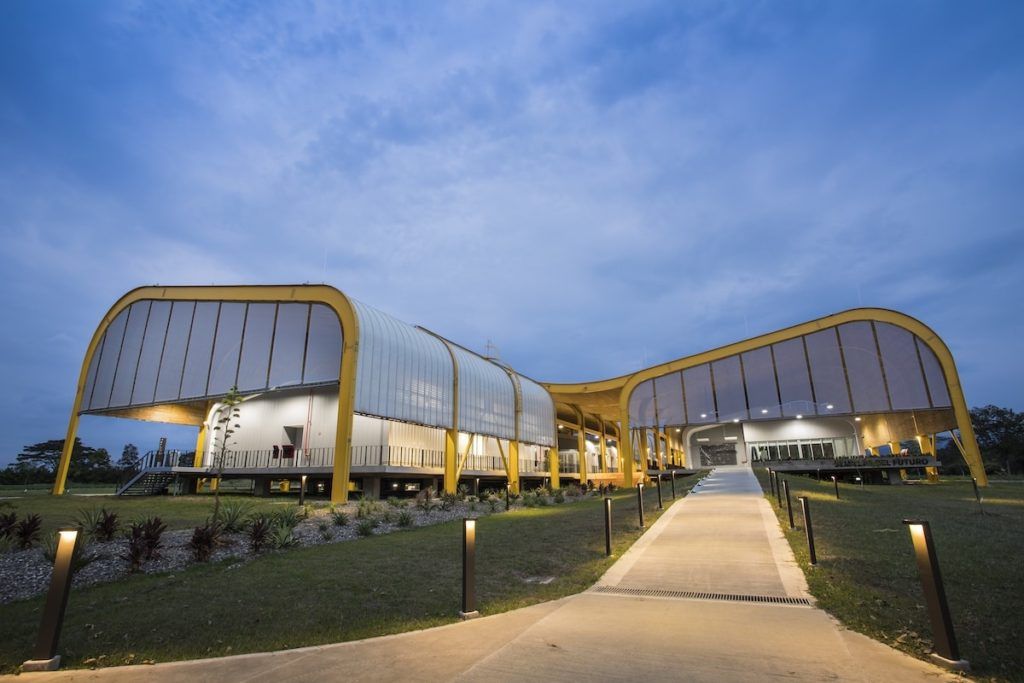The Bezos Earth Fund will invest $17 million in global food security-focused research partnership CGIAR‘s Future Seeds plant gene bank. The gene bank was inaugurated this week in Colombia to preserve plant biodiversity and support agricultural research. CIGAR’s Alliance of Biodiversity International and the International Center for Tropical Agriculture (CIAT) will manage the new facility, which will also serve as an innovation hub for researchers.
What is it?
The Future Seeds gene bank will preserve and safeguard crop varieties while also serving as an educational and innovation hub for researchers working to breed new varieties of crops and improve the productivity, resilience, and nutritional value of plants.
- The new facility provides 30% more storage than its predecessor, an older CIGAR gene bank that held tens of thousands of crop varieties.
- The Future Seeds collection includes more than 37,000 samples of beans from 114 countries; 6,000 cassava samples from 28 countries; and 22,600 samples of tropical forages such as grasses and trees from 75 countries.
- The entire global catalog is open source, patent-free, and funded by a mix of governments, multilateral organizations and foundations; plant genetic material is free of charge to researchers breeding new varieties of plants.
So what?
CGIAR calls these gene banks, which store seeds, seedlings, and tissue containing genetic information, “critical to achieving food and nutrition security worldwide.” The new funds will support the gene bank and climate change mitigation science that emphasizes carbon sequestration using the roots systems of plants, according to CGIAR.
- Future Seeds is part of a larger network of 11 gene banks CGIAR runs globally.
- While these 11 gene banks contain only about 10% of the total number of accessions of germplasm currently held in gene banks, they account for 94% of the germplasm distributed within the guidelines of the “Plant Treaty” – an international agreement aimed at guaranteeing food security through the conservation, exchange and sustainable use of the world’s plant genetic resources.
- Future Seeds is unique in this network in that it is not just a library for crop varieties but also an innovation hub that will leverage genomics, big data, robotics, drones, and AI to accelerate the development of climate-resilient crops.
The UN Food & Agriculture Organization estimates that nearly 690 million people, or 8.9% of the world population, are hungry. The vast majority of these people live in the Global South, the broad term applied to developing nations, which are mostly in the Southern Hemisphere.

The Global South also happens to host multiple climate “hotspots,” areas of the world that are expected to be drastically impacted by climate change. CGIAR notes that climate change is predicted to continue reducing crop productivity by an estimated 5% for every degree of warming above historical levels.
The Future Seeds gene bank is partly focused on research and conservation of crops important to the diets of these regions. For example, the new facility is said to be the world’s largest genetic library for beans and cassava, two key staple crops in the Global South, and for various tropical forages.
What they’re saying:
In a statement, Juan Lucas Restrepo, director general of the Alliance and CGIAR’s global director of partnerships and advocacy, said:
“The Future Seeds gene bank will strengthen the global toolkit for researchers and crop breeders to find the traits that could further climate-proof and shock-proof global food systems. This new investment from Bezos Earth Fund will help safeguard the resource for future generations, and will support the gene bank’s work to use crops for climate change mitigation through carbon sequestration.”
In the same announcement, Marco Ferroni, chair of CGIAR’s System Board, added:
“We are in a race against time to conserve crop biodiversity, which is the foundation of our crop research, our food supply, and ultimately of humanity itself. It is estimated that 75 percent of agricultural biodiversity has already been lost in the 20th century alone. “This newest genebank shows how CGIAR is playing a pivotal role, working with national and regional partners, and leveraging global science to deliver impact.”





